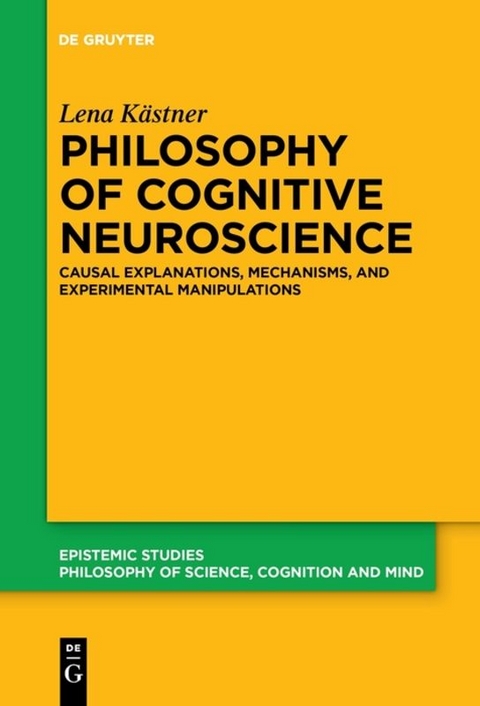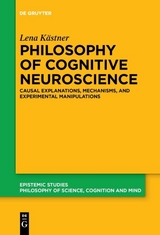Philosophy of Cognitive Neuroscience
Causal Explanations, Mechanisms and Experimental Manipulations
Seiten
This series is devoted to publishing books in the fields of epistemology, philosophy of mind, philosophy of language, and philosophy of science. It is an outstanding platform for state of the art contributions. The studies are carried out in an argumentative style and advance current debates in a significant manner. While the main publication language is English, we also welcome German language submissions. All books are peer-reviewed.
How do cognitive neuroscientists explain phenomena like memory or language processing? This book examines the different kinds of experiments and manipulative research strategies involved in understanding and eventually explaining such phenomena. Against this background, it evaluates contemporary accounts of scientific explanation, specifically the mechanistic and interventionist accounts, and finds them to be crucially incomplete. Besides, mechanisms and interventions cannot actually be combined in the way usually done in the literature. This book offers solutions to both these problems based on insights from experimental practice. It defends a new reading of the interventionist account, highlights the importance of non-interventionist studies for scientific inquiry, and supplies a taxonomy of experiments that makes it easy to see how the gaps in contemporary accounts of scientific explanation can be filled. The book concludes that a truly empirically adequate philosophy of science must take into account a much wider range of experimental research than has been done to date. With the taxonomy provided, this book serves a stepping-stone leading into a new era of philosophy of science—for cognitive neuroscience and beyond.
How do cognitive neuroscientists explain phenomena like memory or language processing? This book examines the different kinds of experiments and manipulative research strategies involved in understanding and eventually explaining such phenomena. Against this background, it evaluates contemporary accounts of scientific explanation, specifically the mechanistic and interventionist accounts, and finds them to be crucially incomplete. Besides, mechanisms and interventions cannot actually be combined in the way usually done in the literature. This book offers solutions to both these problems based on insights from experimental practice. It defends a new reading of the interventionist account, highlights the importance of non-interventionist studies for scientific inquiry, and supplies a taxonomy of experiments that makes it easy to see how the gaps in contemporary accounts of scientific explanation can be filled. The book concludes that a truly empirically adequate philosophy of science must take into account a much wider range of experimental research than has been done to date. With the taxonomy provided, this book serves a stepping-stone leading into a new era of philosophy of science—for cognitive neuroscience and beyond.
Lena Kästner, Berlin School of Mind and Brain / Humbodt-Universität zu Berlin, Germany.
| Erscheinungsdatum | 17.06.2017 |
|---|---|
| Reihe/Serie | Epistemic Studies ; 37 |
| Zusatzinfo | b/w line drawings |
| Verlagsort | Berlin/Boston |
| Sprache | englisch |
| Maße | 155 x 230 mm |
| Gewicht | 503 g |
| Themenwelt | Geisteswissenschaften ► Philosophie ► Erkenntnistheorie / Wissenschaftstheorie |
| Geisteswissenschaften ► Philosophie ► Philosophie der Neuzeit | |
| Schlagworte | Interventionismus • interventionist causation • Neuroscience • Neurowissenschaften • philosophy of science • Wissenschaftstheorie |
| ISBN-10 | 3-11-052737-5 / 3110527375 |
| ISBN-13 | 978-3-11-052737-7 / 9783110527377 |
| Zustand | Neuware |
| Haben Sie eine Frage zum Produkt? |
Mehr entdecken
aus dem Bereich
aus dem Bereich
die Grundlegung der modernen Philosophie
Buch | Softcover (2023)
C.H.Beck (Verlag)
18,00 €
Buch | Softcover (2023)
Reclam, Philipp (Verlag)
7,00 €



![Was heißt Denken?. Vorlesung Wintersemester 1951/52. [Was bedeutet das alles?] - Martin Heidegger](/media/113619842)
